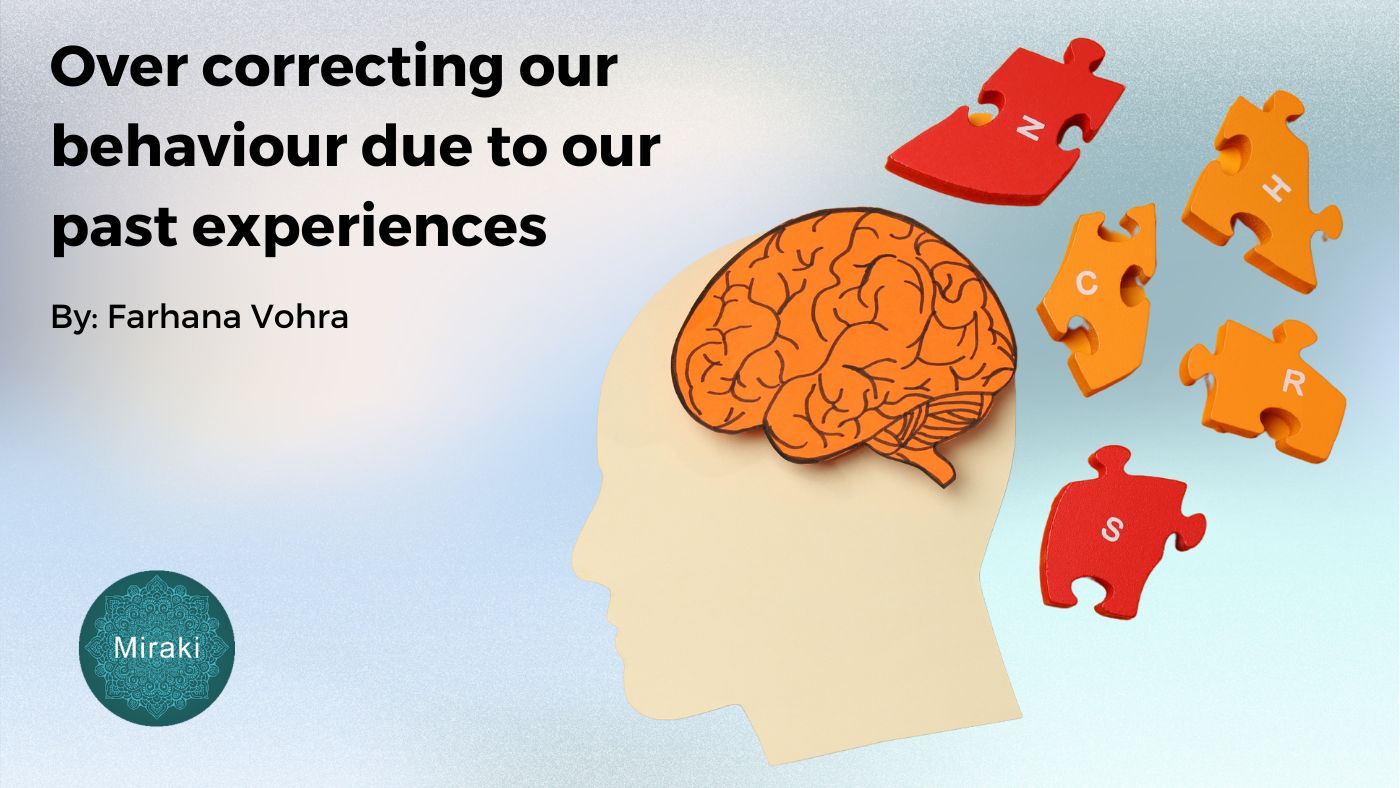Over correcting our behaviour due to our past experiences
As adults, we over-correct our childhood issues, experiences, and traumas. This article describes this syndrome and some key measures to change our responses.
The phenomenon of over-correcting childhood issues, experiences, and traumas is often called “reaction formation” in psychological terms.
It involves a subconscious psychological defense mechanism where individuals go to great lengths to behave in a manner that is the opposite of their childhood struggles. This can manifest in various ways, depending on the nature of the original issue or trauma.
Some common examples of over-correction include:
Over-achievement:
Individuals who experienced a lack of recognition or support in childhood may strive to excel in their careers or personal pursuits, driven by an intense need for external validation and success.
Perfectionism:
Those who faced criticism or rejection as children might become perfectionists, constantly striving for flawlessness in an attempt to avoid criticism or judgment.
People-pleasing:
Individuals who grew up in environments where their needs were not met may become excessively accommodating and seek to please others to an extreme degree, often at the expense of their own well-being.
Over-protectiveness:
Parents who felt a lack of security or nurturing as children may become overly protective of their children, sometimes to the point of being overbearing.
To change one’s response and address these over-corrections, several key measures can be taken:
Self-awareness:
Recognizing that you are over-compensating for childhood issues is the first step. This self-awareness allows you to better understand your behaviors and motivations.
Therapy:
Seeking professional therapy or counseling can be immensely helpful. A therapist can guide you in exploring your past, understanding your coping mechanisms, and developing healthier strategies for dealing with childhood wounds.
Mindfulness:
Practicing mindfulness techniques can help you become more present and aware of your actions and reactions. Mindfulness can help you better understand why you are over-correcting and make more conscious choices.
Self-compassion:
Learning to be kind and compassionate to yourself is crucial. Understand that it’s okay to have imperfections and vulnerabilities, and you don’t need to prove your worth through over-correction.
Support systems:
Building a solid support network of friends and loved ones can provide emotional validation and assistance in breaking the cycle of over-correction.
In summary, over-correcting childhood issues and traumas is a common response to past experiences, but with self-awareness, therapy, mindfulness, self-compassion, and the support of others, individuals can gradually adjust their behaviors and develop healthier coping mechanisms.
It’s important to remember that change takes time and patience, but it is achievable with dedication and self-reflection.
Written by: Dr.(hon) Farhana Vohra









Leave a Reply